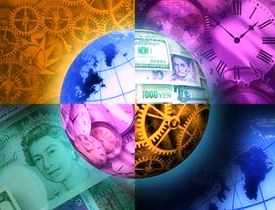Description
Course Name: Diploma in International Economy and Finance
Course Id: DIEF/Q1001.
Education Qualification: Graduate.
Duration: 370 Hrs.
How You will Get Diploma Certificate:
Step 1- Select your Course for Certification.
Step 2- Click on Enroll Now.
Step 3- Proceed to Enroll Now.
Step 4- Fill Your Billing Details and Proceed to Pay.
Step 5- You Will be Redirected to Payment Gateway, Pay Course and Exam Fee by Following Options.
Card(Debit/Credit), Wallet, Paytm, Net banking, UPI and Google pay.
Step 6- After Payment You will receive Study Material on your email id.
Step 7- After Completion of Course Study give Online Examination.
Step 8- After Online Examination you will get Diploma Certificate soft copy(Scan Copy) and Hard Copy(Original With Seal and Sign).
Step 9- After Certification you will receive Prospect Job Opportunities as per your Interest Area.
Online Examination Detail:
- Duration- 120 minutes.
- No. of Questions- 60. (Multiple Choice Questions).
- 10 Questions from each module, each carry 10 marks.
- Maximum Marks- 600, Passing Marks- 40%.
- There is no negative marking in this module.
| How Students will be Graded: | ||
| S.No. | Marks | Grade |
| 1 | 91-100 | O (Outstanding) |
| 2 | 81-90 | A (Excellent) |
| 3 | 71-80 | A (Very Good) |
| 4 | 61-70 | B (Good) |
| 5 | 51-60 | C (Average) |
| 6 | 41-50 | P (Pass) |
| 7 | 0-40 | F (Fail) |
Benefits of Certification:
- Government Authorized Assessment Agency Certification.
- Certificate Valid for Lifetime.
- Lifetime Verification of Certificate.
- Free Job Assistance as per your Interest Area.
Syllabus
Diploma in International Economy and Finance
International Economy and Globalization
Introduction to Global Economy Course: Globalization of Culture and Economy, IT and Globalization, Globalization vs. Diversity. 4 major Questions of World Economy. Types of Political Economies, Historical Development of Capitalism: Emergence and Nature. Industrial Revolution, Colonialism, Historiography of Conquest. Cultural Westernization, Theoretical Considerations, Factors of Location, Alfred Weber and location theory, Principals of Scale Economics, Industrial Location Theory, Geographic Organization of Corporations.
Non-Tariff Trade Barriers
Sanitary and phytosanitary measures, Technical barriers to trade, Pre-shipment inspection and other formalities, Contingent trade-protective measures, Non-automatic licensing, quotas, prohibitions and quantity control measures other than for SPS or TBT reasons, Price-control measures, including additional taxes and charges, Finance measures, Measures affecting competition, Trade-related investment measures, Distribution restrictions, Restrictions on post-sales services, Government procurement restrictions, Intellectual property.
International Factor Movements and Multinational Enterprises
Economic Growth and International Trade: Growth and Trade when growth is unspecified, formal model of economic growth and international trade, increases in factor endowments and international trade, technical progress and international trade, economic growth, International trade and inter movement of factors; a dynamic analysis of pattern of specialization and factor accumulation, Economic expansion and the terms of trade; The British School Premises hypothesis, Intermediate products and international trade.
Foreign Exchange
Law of contract –Introduction, Objectives, Definition of a Valid Contract, Offer and Acceptance, Capacity to Contract, Consent ,Consideration, Performance of Contracts, Discharge of Contracts, Breach of Contract and Void Agreements, Quasi Contracts, Freedom to Contract – Contracts of Guarantee and indemnity – Introduction, Contract of Indemnity, Contract of Guarantee, Kinds of Guarantee, Creditor, and Surety, Contracts of Bailment and Pledge – Introduction, Bailment and its Kinds, Definition of bailment.
Exchange Rate Determination
Introduction to financial markets; basic parity concepts, monetary models of exchange rates, Bubbles, portfolio balance models, Equilibrium Models; New open economy macroeconomics models, Empirics, forecasting, policy, Control of Credit through Bank Rate, CRR, SLR, Repo Rate and Reverse Repo Rate, Open Market Operations, Margin requirement, Balance of payments deficit-meaning, Determination of exchange rate in a free market, Growth of Education Sector in India alternative farming – organic farming, Current challenges facing Indian Economy.
Exchange Rate Systems and Currency Crisis
Principles and Building Blocks, Frameworks in Practice, Constraints and Challenges, Institutional Frameworks, Goals, and Links with Other Policies, Monetary Policy Frameworks, Monetary Policy Instruments and Operations, Main Concepts and Measurements Used in Monetary Policy Analysis, Monetary Policy Transmission Mechanism, A Quantitative Framework for Monetary Policy Analysis, Monetary Policy frameworks, Monetary Policy Instruments and operations, Monetary policy instruments and operations.

